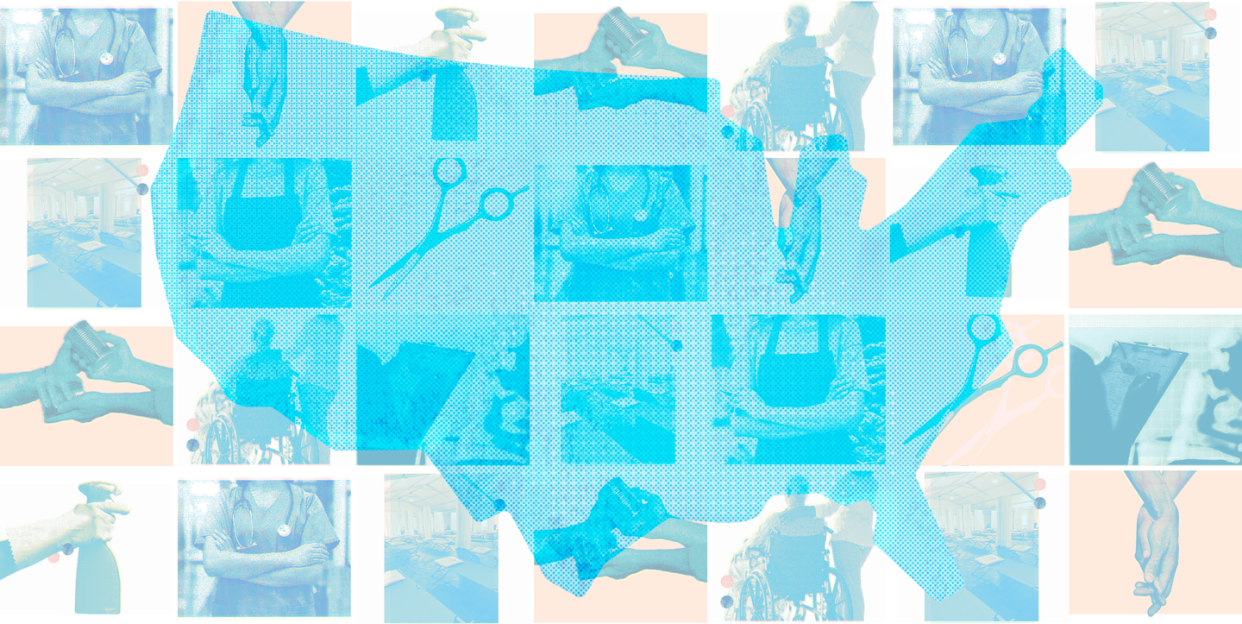How the Pandemic Changed Us: Stories of Hope From Essential Workers Across the U.S.

Since the emergence of the novel coronavirus in the United States, our lives have changed in what feels like every way imaginable — at home, at work, and even our understanding of what the future might hold. The news ebbs and flows with narratives of crisis and triumph, both resonating with us and filling us with uncertainty, as we lean into (at least temporarily) a more virtual world than ever, diligently washing our hands, wearing masks, and managing anxiety and loneliness.
Many of us have the privilege of working remotely, but essential workers don’t have that option — not that some would choose it even if they did. From grocery store clerks to crisis nurses, service and medical professionals are facing a near-impossible challenge: to protect themselves while connecting deeply with those who need them, in a time where social distance is paramount.
Despite the challenges these workers face today in our current environment, our professionals on the frontlines and behind the scenes are stronger than ever — and during this difficult moment in history blooms ingenuity, flexibility, and vision. All across the country, essential workers are pivoting the way they get their jobs done, whether that’s caring for patients safely, creating a new business model, or spending time away from their own families to care for someone else’s.
The stories that follow — from a New Jersey woman who donated plasma after surviving coronavirus and a grocery store clerk thrown into a high-pressure role at the start of the pandemic, to a social worker’s dedication to solving crises in hospitals and a couple that works together (indirectly) on the frontlines at the same hospital — are the voices of essential workers both working together and making it work.
And after hearing these experiences, you might wonder: How can I make the jobs of essential workers easier and help them feel safer and more secure? We asked more than 60 service professionals those very questions. Their answers, collected above, reveal ways, both large and small, that we can repay them for the necessary work they’ve been doing all along.
You Might Also Like
